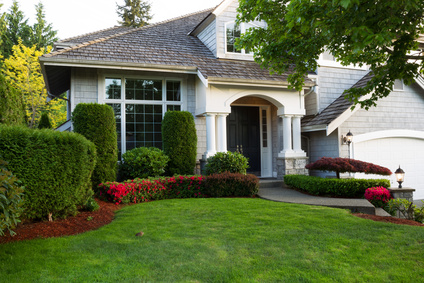Homeowners insurance is one of the most important insurance policies to have. Our homes and everything inside them are typically our most prized possessions and most highly valued assets. If these assets are not properly protected by insurance, the cost of replacing them can result in financial ruin. Insurance policies are not historically known for being easy for the average Joe or Jane to understand. In order to ensure you have adequate coverage, understanding your policy and asking the right questions is essential. The following six questions are paramount to ask when evaluating a homeowners policy.
1. What structures does the policy cover?
Home owners policies are typically set up to cover specific structures on the property. One level of coverage is dwelling coverage, which covers your home itself and damages related to it like plumbing or electrical. Other structures on your property may not be included in your policy unless you request they be added. Barns, sheds, or fences are not standard components of a home owner’s policy, these are usually add-ons. Be sure to ask what structures your policy does or will cover. It would be very disappointing to find out that your barn that burned down was not covered by your homeowners policy.
2. What other elements are covered?
You need to know what else is covered in the policy. There are options for personal property coverage that protects the entire contents of your home. This coverage amount is typically 50% of the dwelling limit, but additional coverage can be purchased. Keep in mind that if the contents of your home are not protected, things like appliances, furniture, and electronics would all need to be replaced out of your pocket in the event that damage or loss occurs. Does your policy cover loss of use? This type of coverage helps homeowners who are displaced temporarily due to damage to their home (fire, destruction, etc.). Loss of use coverage would provide funds for added living costs like hotels, meals, etc. Most policies cover services like debris removal or tree and shrub replacement, but you should always ask to be sure.
3. What about personal liability?
Personal liability coverage can be purchased as part of homeowners insurance. This type of coverage can protect you in the case that a legal action is brought if a person visiting the home is injured. The personal liability coverage pays for both liability and legal defense. Be sure to ask what the policy limits for this coverage is. Individuals with high risk may consider increasing this coverage.
4. What about medical coverage?
Medical coverage can be purchased as part of a homeowners policy. This coverage provides payment for medical bills in the case that someone is hurt on your property. This does not cover anyone living in the home and this coverage is very limited. Be sure to ask the amount of coverage prior to adding this onto a policy.
5. What is not covered in my policy?
There are many typical exclusions with home owner’s policies. Water damage that is caused by flooding is excluded in home owner’s policies. There is a national program, The National Flood Insurance Program, designated to provide this type of coverage to individuals who live in communities at risk of flooding. Homeowners insurance does not cover the normal wear and tear associated with the aging of your home. Most policies do not cover damage from a sewer back up or sump pump overflow. This coverage can be purchased as an add-on. Damage to your home that is the result of war, neglect, earthquakes, or downed power lines is typically excluded from homeowners policies. Additionally, business assets that are stored at your home should be covered under a business policy. Most homeowners policies do not cover business assets. Boats and cars are also not typically covered under homeowners policies and typically hold their own policy separate from the home.
6. What do I do if I have to file a claim?
Depending on the nature of your damage, you may first have to file a police report. If your home has been damaged by an act of vandalism, fire, theft, or other, you should first contact the police and then contact your insurance company. When you call your insurance company, have your personal information and policy number ready to go. During business hours, you can call your agent, and after hours your agent will provide you with a 24 hour phone number to dial. Be sure to take appropriate measures to keep your home from further damage. For example, board up broken windows. Write a list of what has been damaged or lost and submit this information to your insurance company. Recipes and pictures are helpful to support the value of lost items. Follow the instructions of your insurance agent to complete the filing of your claim and obtain the payment owed to you.
Thank you for reading our blog! How can we help you? Contact us today.



